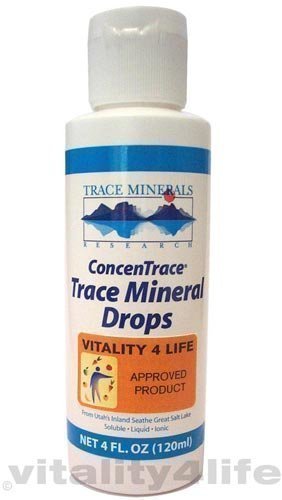Vitality 4 Life uses cookies to provide and improve our services, if you continue browsing, we consider that you accept its use. For more information, please see our privacy page.

Dehydration, an Imbalance of Water & Minerals
100% preventable if you know what to do Dehydration results from the loss of water and important electrolytes from the body, including potassium, sodium, chloride and many other minerals often overlooked. The very functioning of essential organs like the brain, kidney, heart and nervous system can’t function without sufficient water or minerals. In third world countries millions of people die each year from dehydration, particularly susceptible are children and the elderly. But all of us suffer unnecessarily and even when you aren’t actually ill from dehydration, it can affect your quality of life and performance.
Water makes up 70% of our muscles and about 75% of our brain. So it’s not surprising that as minerals and water become depleted, muscle aches and cramps, fatigue and thinking can be affected. Research shows that dehydration can diminish thought processes and memory, therefore adversely affecting global quality of life. This should not be surprising considering that an imbalance in just one mineral can actually lead to substantial biochemical imbalances, so maintaining and replacing the full array of minerals and trace minerals in the daily diet is important, let alone during times of stress.
There are many causes of dehydration, indeed everyday we lose about 2 cups of water from just breathing, so if it is not replaced, a fluid and electrolyte imbalance will occur. Consuming water and replacing your minerals is the essential first step when treating dehydration. Yet the best bet is to get your daily dose of minerals and water daily, so you will be better prepared for potential dehydration risks. Research has shown that pre-loading, treating during and after is the best way to maintain proper hydration.
Dehydration causes fall within 4 basic categories represent common causes…
- Sweating - fever, exercise, excess exposure to heat (heat exhaustion/heat stroke)
- Vomiting - ulcers, food poisoning, flu, etc.
- Diarrhea - gastroenteritis, flu, food poisoning, bowel disease
- Insufficient intake - this can arise from not consuming adequate quantities of water and minerals or a relative deficiency due to excess loss.
The reality is that dehydration happens more frequently than most of us realize. How many of you have suffered from dry lips and mouth, skin that is flaky, a swimmy sensation in your head when you have forgotten to drink sufficient water? Well one or more of these symptoms are very prevalent for tens of thousands of people in Australia alone. In fact, on a hot humid day, an active person can become dehydrated in just 15 minutes.
So, how do you avoid dehydration, well here are two specific clues:
- Get enough water
- Consume your minerals - sodium, potassium, chloride, calcium and magnesium
Minerals - The Spice of Life and an Essential Consideration for Dehydration Treatment…
- Sodium – salt, plain and simple. That is why after sweating you crave salty food.
- Potassium - most Australians don’t get enough. The average intake is only half as much as sodium. A healthful intake is 5 times more potassium, than sodium, which is easily gotten by eating a more vegetable, and fruit based diet.
- Chloride - is essential to keep sodium (NaCl) and potassium (KCl) in proper balance.
- Calcium - is essential for proper cardiac and muscle function and if too low can cause muscle cramps.
- Magnesium - when muscle spasms occur, this mineral is crucial for maintaining a healthy airflow and to help keep blood pressure balanced and reduce associated pain.
- Trace Minerals - the forgotten minerals, yet just because they are trace and small they are lost when dehydration occurs. Replacing them can help maintain overall health and optimal functioning and performance.
Ahletic Performance
If you are athletically inclined, avoiding dehydration takes on an additional significance. Dehydration can decrease your performance and endurance, thus dulling your performance edge. Sports drinks can provide carbohydrates, fluid and minerals. However, recent reports indicate that the increased consumption of sports drinks by children and athletic teens have been linked to premature tooth decay and gum disease.
Trace Mineral Concentrace is the perfect solution to this natural craving to rehydrate the body!












